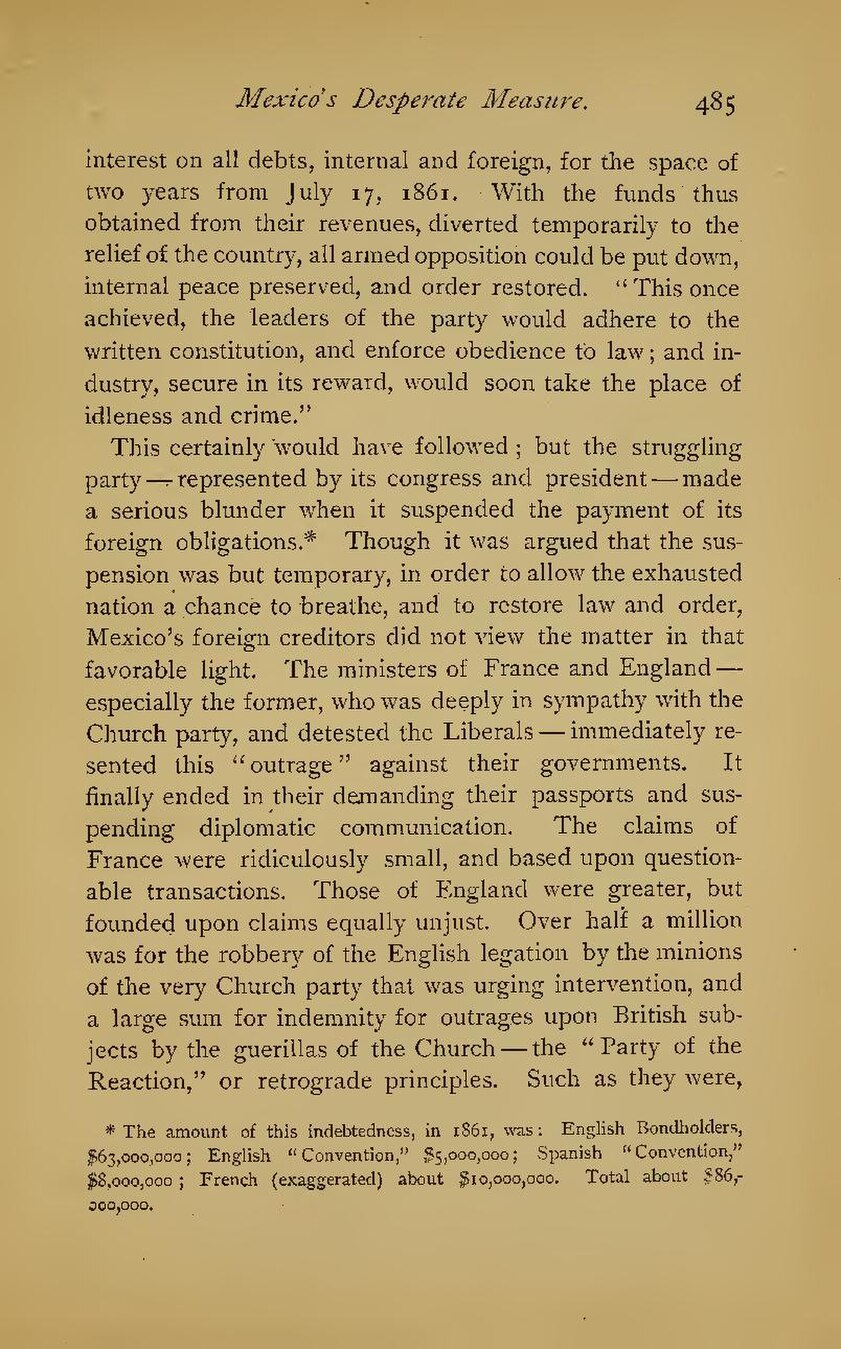interest on all debts, internal and foreign, for the space of two years from July 17, 1861. With the funds thus obtained from their revenues, diverted temporarily to the relief of the country, all armed opposition could be put down, internal peace preserved, and order restored. "This once achieved, the leaders of the party would adhere to the written constitution, and enforce obedience to law; and industry, secure in its reward, would soon take the place of idleness and crime."
This certainly would have followed; but the struggling party—represented by its congress and president—made a serious blunder when it suspended the payment of its foreign obligations.[1] Though it was argued that the suspension was but temporary, in order to allow the exhausted nation a chance to breathe, and to restore law and order, Mexico's foreign creditors did not view the matter in that favorable light. The ministers of France and England—especially the former, who was deeply in sympathy with the Church party, and detested the Liberals—immediately resented this "outrage" against their governments. It finally ended in their demanding their passports and suspending diplomatic communication. The claims of France were ridiculously small, and based upon questionable transactions. Those of England were greater, but founded upon claims equally unjust. Over half a million was for the robbery of the English legation by the minions of the very Church party that was urging intervention, and a large sum for indemnity for outrages upon British subjects by the guerillas of the Church—the "Party of the Reaction," or retrograde principles. Such as they were,
- ↑ The amount of this indebtedness, in 1861, was: English Bondholders, $63,000,000; English "Convention," $5,000,000; Spanish "Convention," $8,000,000; French (exaggerated) about $10,000,000. Total about $86,000,000.
